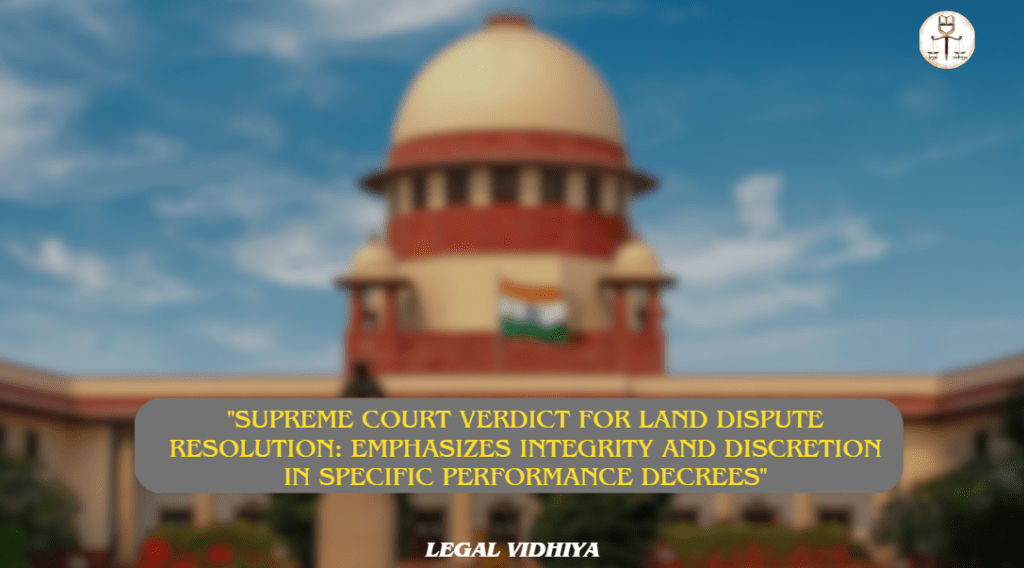
In a recent landmark ruling, the Supreme Court settled a longstanding land dispute involving Major General (retd) Darshan Singh and three others against Brij Bhushan Chaudhary over a plot of land in Chandigarh. The case revolved around an agreement for the sale of the land, with the plaintiffs seeking specific performance of the contract.
The agreement stipulated a consideration of Rs. 3,50,000, with Rs. 30,000 paid as earnest money. However, the Trial Court dismissed the suit, alleging that the plaintiffs were not ready and willing to fulfil their part of the deal.
The crux of the matter boiled down to two key questions: Were the plaintiffs genuinely prepared to honour their end of the contract? And was the disputed land part of the defendant’s Hindu Undivided Family (HUF) property?
The plaintiffs vehemently argued their readiness and willingness to abide by the agreement, while also asserting that the land in question was the defendant’s individual property, not belonging to the HUF. Conversely, the defendant maintained that the land fell under the HUF’s ownership and that no possession had been transferred to the plaintiffs.
Upon deliberation, the High Court upheld the property’s status as HUF-owned, citing relevant legal precedents. Consequently, the decrees issued by the Trial Court and the First Appellate Court were affirmed.
However, the pivotal decision rested with the Supreme Court, tasked with determining whether the plaintiffs deserved specific performance of the contract.
The apex court emphasized that granting such a decree is discretionary, with the plaintiff’s readiness and willingness to fulfil their obligations serving as crucial factors. In this case, the Supreme Court found that the plaintiffs had failed to convincingly demonstrate their commitment to the contract terms. Notably, discrepancies in the plaintiff’s assertions regarding price negotiations undermined their credibility.
This verdict carries significant implications, underscoring the discretionary nature of specific performance decrees and the importance of truthfulness in legal proceedings. Parties must adhere to the highest standards of honesty and transparency when presenting their cases before the court.
In essence, the ruling reaffirms the principle that equitable relief hinges not only on legal merits but also on the integrity and sincerity of the parties involved.
Written by- Kaavya Gopal, PES University, 6th semester, Intern under legal vidhiya.
Disclaimer: The materials provided herein are intended solely for informational purposes. Accessing or using the site or the materials does not establish an attorney-client relationship. The information presented on this site is not to be construed as legal or professional advice, and it should not be relied upon for such purposes or used as a substitute for advice from a licensed attorney in your state. Additionally, the viewpoint presented by the author is of a personal nature.




0 Comments